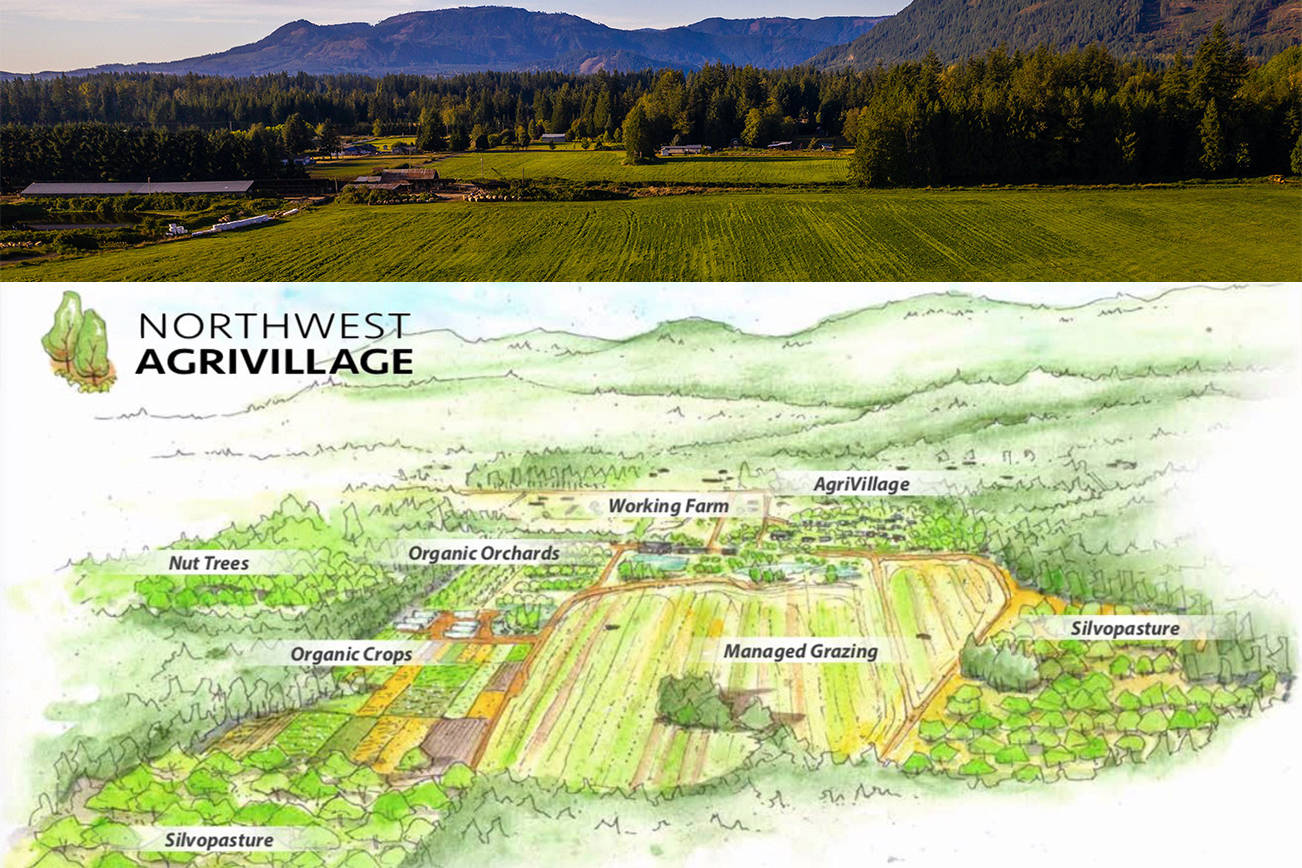Submitted by Susan Atkinson
Agriculture is big business in Washington, generating over $9 billion in revenue each year, according to American Farmland Trust. But farmers are facing a number of challenges. With property values going up and fewer new generations taking over family farms, farmland is increasingly vulnerable to being converted to sprawling residential developments. As urban areas grow, farmers are feeling pressured to sell their land to encroaching developers. In some areas, farmland has become so valuable that many farmers can’t afford not to sell, and would-be farmers are having a hard time finding affordable land.
Less farmland makes it difficult to produce crops locally, can raise food prices, and threatens the ecological functions that farms serve. Well-managed farmland helps control flooding, protects wetlands and watersheds, fosters biodiversity, and maintains air quality. Regenerative farming techniques can make farms into productive carbon sinks, pulling CO2 out of the atmosphere and increasing soil fertility. Storing carbon in the soil is one of many strategies that can help address our changing climate.
Rooted Northwest, www.rootednw.org, a new agrivillage forming in western Washington, hopes to address all of these issues by accommodating both residential growth and farmland preservation. When the project is finished in about three years, Rooted will combine a close-knit village living with regenerative agriculture on 240 acres of an upland farm near Arlington. Five to 10 acres of the property will be used for up to 70 cohousing residences, and the remainder will be dedicated to regenerative agriculture.
A local family farmed the property for more than 100 years, and Rooted is proud to carry on their tradition of land stewardship. Rooted’s founders specifically sought out farmland that was at risk of development so they could maximize the positive impact of the project. The property contains a mix of forest, pasture, and cropland. Farming opportunities will abound for both the community and commercial ventures.
Several successful cohousing communities exist in Washington, but none have invested in an agriculture model to the degree that Rooted has. A permaculture master plan will guide Rooted’s agricultural activities so they are both productive and restorative. One aspect of permaculture design works with sustainable agriculture systems designed to support soil health, and thereby human health. This approach offers tools and techniques to mimic nature’s patterns. Rooted NW intends to explore progressive systems such as silvopasture, alley-cropping, managed grazing, and forest farming. They will also be applying for organic certification.
One of the founding members — Dave Boehnlein from Terra Phoenix Design — is a permaculture author, designer, and educator. He first discovered permaculture working in Central America and then spent seven years living at Bullock’s Permaculture Homestead on Orcas Island, becoming a leader in the topic. Working together with the agrivillage community he will encourage educational opportunities to share knowledge and skills in sustainable food-growing practices. Part of Rooted’s acreage will provide a place for experimentation and demonstration of regenerative techniques.
“To me, this project is all about reintegrating the meaningful aspects of our lives: community, food, livelihood, and stewardship,” Boehnlein said. “I helped launch this project because I’ve experienced a lifestyle where these things weave together harmoniously in day-to-day life and I want to share that with others.”
Kathryn Gardow, c0-founder of Washington-based MetroAG Strategies and owner of Gardow Consulting, is enthusiastic about Rooted’s plans.
“For the last 10 years, I have espoused the idea of building an ‘agri-hood,’ an agricultural residential neighborhood,” Gardow said. “It’s gratifying that Gardow Consulting is part of the team that developed Rooted NW. More than three-quarters of the property will be dedicated to growing food and fiber. Reconnecting people to the land through food builds resiliency and community.”
The members of Rooted Northwest hope that agrivillage living becomes more common and inspires other communities threatened by farmland loss. Future generations of farmers will reap the rewards of farmland-preservation protections put in place now. Our future food security depends on it.



